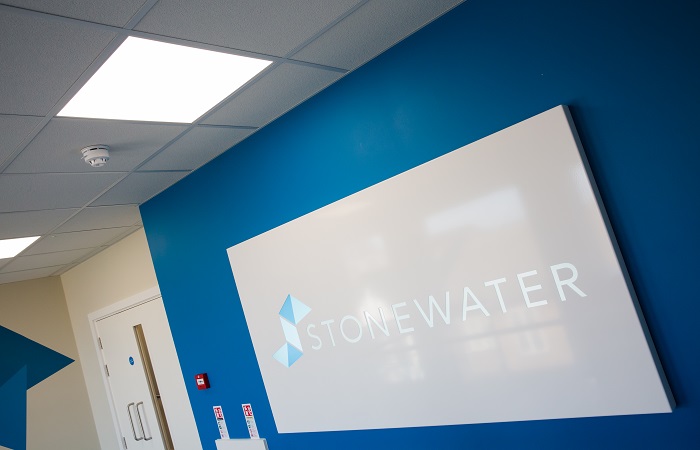
In 2017, housing association Stonewater started a three-year programme of digital evolution. Most recently, this saw the introduction of an HR chatbot, which was piloted from May 2019 and fully introduced in early 2020.
The product, provided by HR and payroll specialists MHR, streamlines administrative processes, such as scanning receipts for expenses and booking annual leave, as well as giving staff, 46% of whom are not office-based, a more consumer-like experience of benefits, that they can access and interact with at any time.
This introduction of artificial intelligence (AI) into employees’ everyday experience is also aimed at helping them grow their understanding of the kind of technology that will likely become a much greater feature of their professional lives down the line.
Jenny Sawyer, director of people and organisational development at Stonewater, explains: “This is about being able to work anywhere, anytime. [And] if [employees] have a good experience themselves of [AI], then they would be advocates for the wider digitalisation of customer service.
“Our people strategy centres around three things: people being engaged, developed and equipped. Everything that we’ve delivered in the people strategy always comes back to one of those three things.”
In addition to making employees’ working lives easier, having this tool firmly embedded in both the organisation’s HR processes and the workforce’s day-to-day experiences means that Stonewater can look at pulling it into the evolution of its methods of measuring engagement, allowing for regular, live contact with employees.
Until that time, though, Stonewater has tried-and-tested methods of gauging employee satisfaction and engagement, centred around annual surveys and external benchmarking. Each year, the organisation takes part in the Sunday Times’ Best companies survey; for 2020, it rose 11 places up the league table, and now sits at number 67.
Far from struggling to get staff to take an interest, Stonewater receives on average an 85% or higher response rate, says Sawyer. “It’s good because [we] can externally benchmark, but also because it’s a household name, so it does mean something to people,” she says.
For Stonewater, engagement is embodied in four key metrics: pride, satisfaction, advocacy and loyalty. Although still seeing the success of annual benchmarking and surveys to measure these pillars, the organisation does see the value of updating its strategy, whether or not it chooses to incorporate the chatbot.
“We are, like many, keen to move towards something that’s more regular and probably digital, so some sort of online pulse survey,” Sawyer explains. “[Yearly surveys] are a tried-and-tested method, but obviously it would make sense to consider other options. More of the employee experience is digital, we can see the value of having [engagement surveys] as part of that. The other thing I like about pulse surveys that [we] don’t get with yearly surveys is the ability to predict future behaviour.
“[The yearly survey] is not about quick wins, it’s about building confidence and trust; so it’s trying to make sure [we’ve] still got that, as well as the benefits of having something more regular and live.”
At the heart of it all, no matter where engagement surveys go in the future for Stonewater, is the need to ensure that employees feel listened to.
“Of course, survey results are only ever an indicator, so [we] need to unpick it and ask questions and get people to think about what they can do differently,” says Sawyer. “We [also] steer clear of the ‘you said, we did’ [approach], it’s very much ‘we said these things about what it’s like to work here, and this is what we’re going to do about it’. The clear message is: we’re all in this together, and [employees are] empowered to make a difference.”